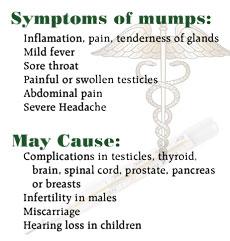Outbreak of mumps reaches Midwest region

Illustrations by Adam Fast and T.J. Gerlach
Mumps is approaching the largest level in nearly 20 years.
Zeta Tau Alpha has already had a mumps scare.
“My sorority had a traveling consultant come visit,” said Carolyn White, junior biology major. “The day she left, she received a phone call from the president of the Zeta Tau Alpha Chapter at the University of Iowa. She was informed that the president had the mumps.”
White said she spent a large amount of time with the sorority consultant.
“I was exposed, along with some of my friends and my boyfriend Bob,” she said. “If it had spread from her to us, we have already spread it to all our classes.”
White said she has experienced no symptoms since the visit several weeks ago.
Another student, Sarah Jones, was also worried she may have been exposed.
“I was hungry,” said Sarah Jones, sophomore secondary theater education major. “All my friends are in Zeta, so I tagged along to Panera on a Sunday afternoon. It was there that I met the Zeta consultant. While we were in line, we were talking about a new drink. She bought and we shared it.”
The news of mumps came as a shock.
“I was horrified to find out she might have been exposed to the mumps,” she said.
The outbreak began in Iowa, with more than 800 infected there. It has predominately affected college students of whom most have been vaccinated. The Centers for Disease Control and Prevention is tracing the origin of the virus, but is more concerned with containing it.
Affecting eight Midwest states, the virus has been as far south as Kansas City.
Jan Dipley, health service coordinator, advises students to ensure they have had two MMR (measles, mumps and rubella) vaccinations.
“Students have to have it,” she said. “It is given in Fresh Start to anyone who hasn’t had it.”
Dipley said it is difficult to prevent exposure; however, immunizations are key to fighting the virus.
Students should ensure they have had both vaccinations and ensure their shot records are in the Health Clinic in Kuhn Hall.
Dipley warned if an outbreak happens on campus, any student who does not have this record, will not be allowed to attend classes.
Although infants receive vaccinations, about 10 percent of the population is susceptible to the virus.
The mumps is transmitted person to person with an average incubation period of 18 days. Students are advised to seek healthcare attention is symptoms occur.
Students should watch out for symptoms and in the meantime, check to ensure they have school shot records in Kuhn Hall.
Your donation will support the student journalists of Missouri Southern State University. Your contribution will allow us to purchase equipment and cover our annual website hosting costs.



























